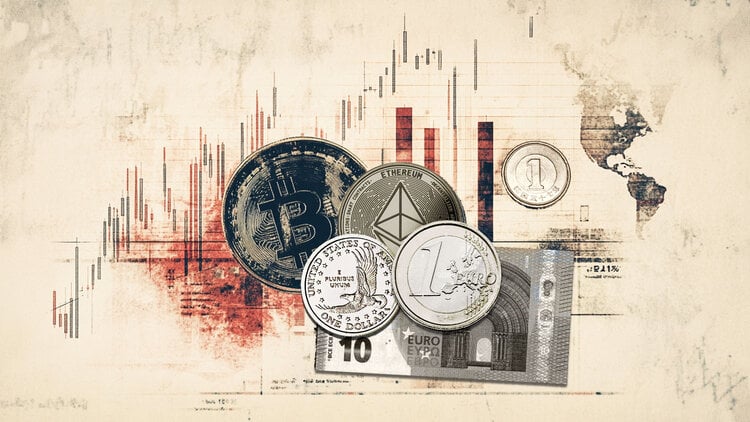Unlike the government’s successful efforts to lower the price of gasoline at gas stations, the price of diesel oil continues to be on an upward trajectory and there are no signs that it will fall again.
The liter of fuel has been rising month by month since December 2021, according to a survey by the National Petroleum Agency (ANP). Petrobras, which prices the fuel on sale to distributors, still sees a ‘stressed’ market and no chance of a significant drop.
The assessment is by the spokesman in the area of prices, Claudio Mastella, director of Commercialization and Logistics, and was shared with journalists last Friday (29/7). Today, the average price of a liter of diesel at gas stations is R$7.42. The amount is more than double the R$3.69 registered by the ANP survey in January 2021.
The rise in prices in this period of time has a set of factors as its cause, but the root is in Petrobras’ International Price Parity Policy, which basically levels the values practiced in Brazil to those of importing companies and the world market.
Today, the largest share of the price (about 67%) is the gross value of a liter of diesel charged by the state-owned distributors, which is equivalent to about R$5.06. The other 33% are taxes and the profit of distributors and gas stations, in addition to the mandatory blending with biodiesel.
Prices soared after the start of the Ukrainian War. Russia had a share close to 15% of the global market and began to be boycotted. Added to the fact that the dollar rose and the price of a barrel of oil as well, the international price soared and the parity followed.
Large world producers or consumers such as the United States, India and countries in the Middle East and Europe also have low diesel inventories.
Today, 25% to 30% of the diesel oil used to supply the country is imported. Increasing domestic production could even help lower prices, but for that to happen, two moves would be necessary: change, or at least relativize, the international parity policy and increase refining capacity.
But to increase refining, Petrobras would need to build or expand refineries, which is not in the company’s strategic plan. In addition, refineries operate today with a capacity close to 97%, reaching up to 99% in recent weeks, and will need to stop for scheduled maintenance – which will increase the need to import the fuel.
Other refineries that supply the world, in the United States and the Caribbean, must also have to stop because of the hurricane season. This at a time when Brazil usually needs more diesel, due to the economic moment.
In September, Brazilian truck drivers transport corn, soybeans and sugarcane crops, in addition to Black Friday and Christmas shopping, which will supply stores across the country. With more demand, the price also goes up.
At the end of May, the then president of Petrobras, José Mauro Coelho, sent a letter to the Ministry of Mines and Energy warning of ‘uncertainties’ in the ‘international quotations’ of diesel. It’s just that with this complex scenario, it was not possible to predict – in his opinion – how much the price would rise.
“Given the scenario of global diesel shortages and the schedule of scheduled stoppages at refineries — despite the company’s best efforts, Petrobras understands that there is a high risk of diesel shortages in the Brazilian market in the second half of 2022. Additionally, there are also major uncertainties regarding the levels of international quotations for the product in this context of scarcity”, pointed out Coelho in the document.

Two months later, the director who takes care of Petrobras prices, again suggested that the price should not fall.
“In addition to what is happening today, winter is approaching in the northern hemisphere. The expectation is for diesel to stay at that level or even stronger. Unless, for example, a strong global recession is confirmed, which has not happened. Today we see the market moving sideways, with possible reinforcement for diesel at the end of the year”, Mastella told investors at a virtual conference last week.
In this complex scenario, President Jair Bolsonaro has already informed that he is negotiating the purchase of diesel oil shipments with Russia. THE CNN questioned the major distributors about this negotiation, but none of them confirmed the claim.
About this, when asked whether Petrobras plans to buy diesel from Russia, Mastella said that the state company ‘does not rule out anything’, but also did not confirm the claim.
For the president of the Brazilian Association of Fuel Importers (Abicom), Sérgio Araújo, the plan is difficult to become a reality. “With the sanctions imposed, our associates claim that it is impossible to pay for cargo originating in Russia. No first-rate bank would accept this operation”, says Araújo.
He also says that it is not usual to import the fuel from Russia. “A ship with diesel from Russia takes up to 50 days to arrive in Brazil. But in addition to the long travel time, we still have more expensive freight and insurance values”, he adds.
Source: CNN Brasil
I am Sophia william, author of World Stock Market. I have a degree in journalism from the University of Missouri and I have worked as a reporter for several news websites. I have a passion for writing and informing people about the latest news and events happening in the world. I strive to be accurate and unbiased in my reporting, and I hope to provide readers with valuable information that they can use to make informed decisions.







